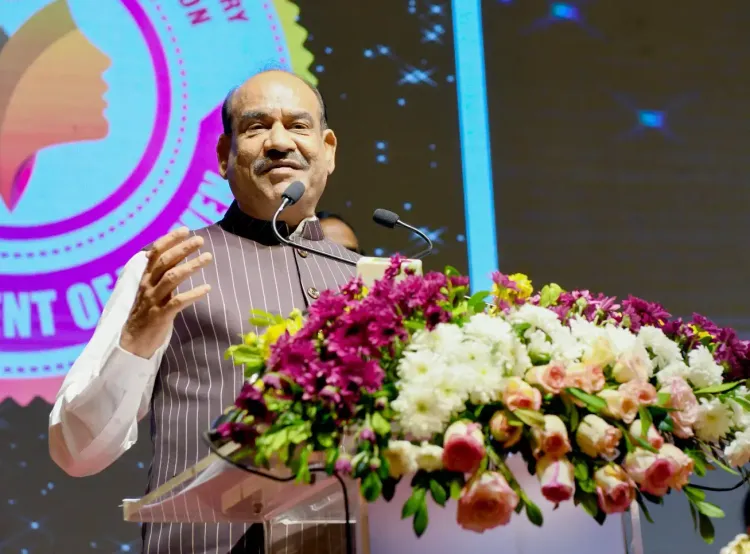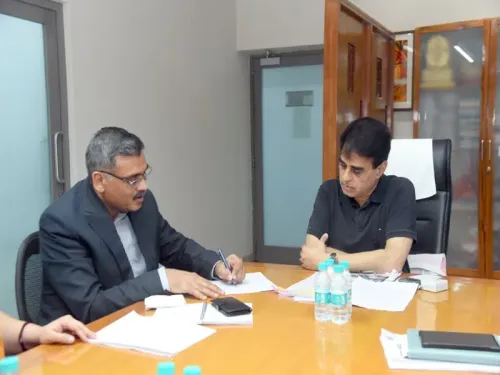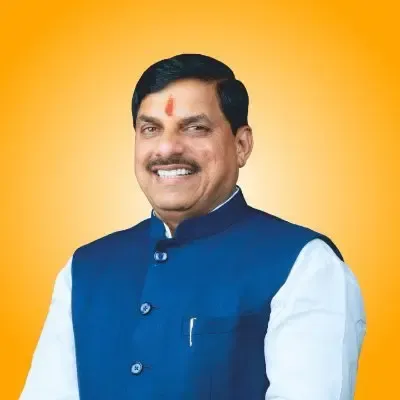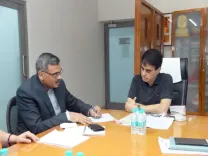Why is there a need for sustainable economic empowerment models for women?

Synopsis
Key Takeaways
- Investment in Women's Health: Essential for unlocking potential.
- Education and Skills Development: A pathway to empowerment.
- Gender-Responsive Budgeting: Crucial for equitable resource allocation.
- Closing the Digital Divide: Ensuring women’s engagement in technology.
- Leadership Roles: Women’s contributions are vital for national progress.
Tirupati, Sep 15 (NationPress) Lok Sabha Speaker Om Birla emphasized the urgent requirement for sustainable economic empowerment models for women during a national conference where a resolution outlining the pathway for enhancing women’s empowerment was endorsed.
The inaugural national conference of Parliamentary and Legislative committees on women empowerment concluded with the acceptance of the ‘Tirupati Resolution’.
In his closing remarks, the Lok Sabha Speaker highlighted that women’s empowerment is not just a social obligation but a vital economic necessity.
“By investing in women’s health, education, skills, and entrepreneurship, India can unleash a tremendous pool of human capital and cultivate a robust socio-economic development model,” he stated.
Birla emphasized that the leadership and input from women are crucial for India’s progression towards a Viksit Bharat by 2047.
The ‘Tirupati Resolution’ highlighted the importance of applying a gender perspective across all Ministries and Departments, increasing funding for health, education, skills, and entrepreneurship, institutionalizing gender-responsive budgeting, and enhancing technical capabilities at both national and state levels.
Furthermore, it is committed to narrowing the digital gap, promoting women’s involvement in STEM fields, ensuring cyber safety, advancing digital literacy initiatives, and empowering women as active technology creators.
Reiterating the significance of women-led development, the Resolution promised to enhance women’s education, health, safety, dignity, and self-sufficiency as the foundation of national advancement and the realization of Viksit Bharat by 2047.
On the occasion of the International Day of Democracy, the Lok Sabha Speaker remarked that democracy in India is more than a political structure; it embodies a civilizational value and a way of life.
He noted that India, revered as the Mother of Democracy, has long upheld the principles of equality, dialogue, and participation, with democracy intricately interwoven into the nation’s cultural and social essence.
Birla asserted that women’s empowerment ought to be viewed not merely as an issue of welfare, but as the bedrock of national growth.









